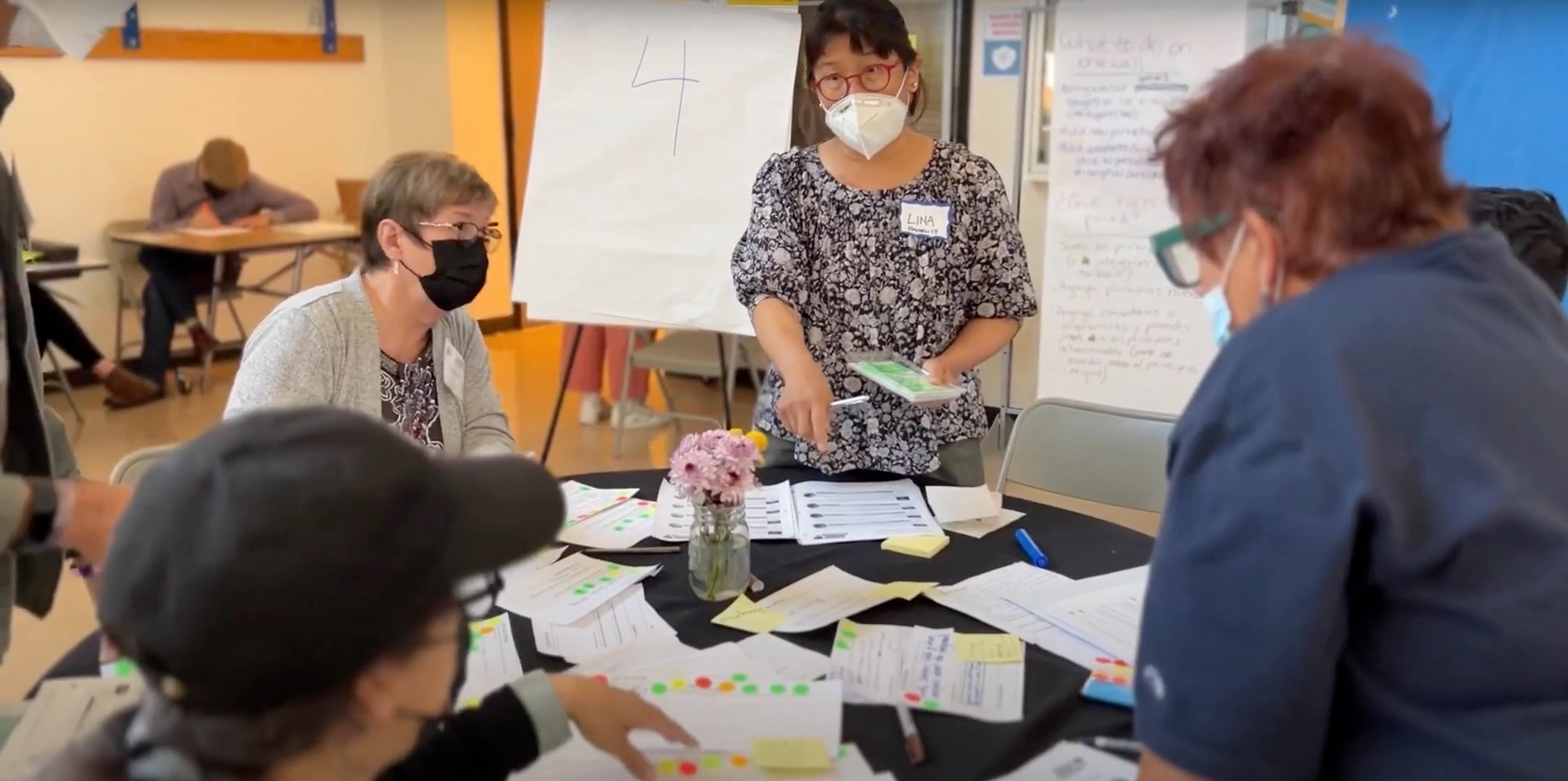Berggruen Institute Report: Historic California Citizens’ Assembly Dramatically Increases Political Engagement, Builds Community and Social Cohesion Among Participants

A landmark citizens’ assembly in a California city bridged political divides, energized civic engagement, and heightened trust in institutions among participants. That’s according to a new Berggruen Institute analysis of the Petaluma Fairgrounds Advisory Panel (PFAP), the first randomly selected citizens’ panel to partner with local government and feature extensive deliberation in America’s largest state.
PFAP convened 36 randomly selected residents for 102 hours of information gathering, mediated deliberation, and writing of recommendations for the future development and use of a major public property in Petaluma, a city of 60,000 approximately 40 miles north of San Francisco. Report author Marjan Horst Ehsassi, a Berggruen Fellow and democracy scholar, uses direct observations from these proceedings, subsequent interviews, and participants’ survey responses to assess the impact of PFAP and make recommendations for similar efforts in California and across the US.
Some of Ehsassi’s most notable findings from this study include:
As a result of their participation in the Petaluma deliberative process:
- 65 percent of participants report a growing sense of community with other panelists
- 39 percent report that they have become more politically active
- 92 percent report that they feel that their input is meaningful and important in local decision making
- In interviews, participants report “greater understanding of the complexities involved in governing” and new levels of empathy for politicians and civil servants that they had not previously possessed
- In interviews, participants explain how the experience bridged traditional divisions and built social cohesion
- In interviews, participants describe optimism, pride, renewal and “hope that democracy can exist”
“Disengagement and distrust are driving forces behind democratic decline here in the US and around the world,” said Ehsassi. “While small in scale, these findings are a concrete example of how deliberative democracy can be an effective tool for putting the public back into policy, arresting these trends, and enabling healthy and constructive political engagement. The Petaluma Fairgrounds Advisory Panel can serve as an important proof of concept for deliberative democracy in the United States.”
City Manager Peggy Flynn and the Petaluma City Council chose the citizens’ assembly process as an innovative way to acknowledge and channel community perspectives into policymaking on the future of the Petaluma Fairgrounds, public space that for 50 years has played a uniquely central role in civic life. PFAP was administered by Healthy Democracy, a US-based non-profit.
This analysis of PFAP is the latest Berggruen Institute project to track the spread of what the OECD calls a “deliberative wave” of citizens’ assemblies globally. The Institute hopes that citizens’ assemblies can promote social cohesion, reduce polarization, and alleviate other root causes of democratic decline.
Other work includes Berggruen Fellow and deliberative democracy pioneer Carsten Berg’s 2022 report on the EU Citizens’ Panels, the first instance of citizens’ assemblies convened across national and linguistic boundaries. Another is Sense LA, which uses a methodology called “creative assemblies” to build social cohesion among communities and government in Southern California. Deliberative democracy is also a core idea in Renovating Democracy: Governing in the Age of Globalization and Digital Capitalism, the 2019 book authored by Institute co-founders Nicolas Berggruen and Nathan Gardels.
“Healthy democracy in the 21st century will require radical institutional innovation,” said Dawn Nakagawa, Executive Vice President at the Berggruen Institute. “We’re becoming a hub for knowledge and exchange about citizen’s assemblies and democratic innovations that people are experimenting with around the world.”
An expert on deliberative democracy, Ehsassi was appointed and served as guarantor of France’s Citizens’ Convention on the End of Life, a recently-concluded citizens’ assembly whose landmark report included recommendations to create a statutory right to die (2023). She was on the Oversight Committee of the Belgian G1000 We Need To Talk Citizens’ Panels (2023), and has researched other recent instances of deliberative democracy: the French Citizens’ Convention on the Climate (2020), the Parliament of Brussels Deliberative Committee on Homelessness (2020), and the Canadian Citizens’ Assembly on Democratic Expression (2021).
“The Petaluma Fairgrounds Advisory Panel had a meaningful impact on the lives of participants, and can serve as the beginning of a positive evolution in the city’s democratic culture,” said Ehsassi. “Other localities in California should take this opportunity to deepen engagement with their citizens on local policy issues.”